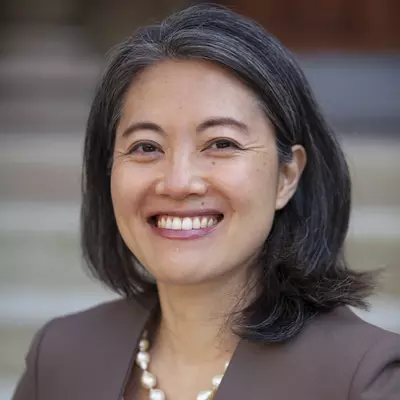
Is the Professionalism of Teaching Hurting Teachers in Japan?
September 18, 2023 | 12:00PM - 1:30PM
|
In-person
This event took place in Room 208N, North House, 1 Devonshire Place, Toronto, ON, M5S 3K7
Professionalizing teaching has been promoted in many countries for many years. The Japanese Government has also pursued a policy of professionalizing teaching since 2002. At the same time, however, it has advanced new policies that restrict the human rights of teachers, narrowing their professional autonomy and worsening their working conditions. How can these two policies be pursued without contradiction? How is the concept of “teaching as a profession” advocated in Japan?
In this presentation, Professor Aki Sakuma answered these questions by focusing on how the Japanese version of the concept was imported from the West and subsequently transformed in a non-Christian setting in the 19th century. It was formulated by a national action to create a strong centralized nation-state in Asia, but also in the transnational interaction of European, American, and Japanese educational leaders.
Firstly, the current Japanese teacher policies as well as the data of teaching conditions are shared.
Secondly, the early Japanese concept of “teaching as a profession” is explored by examining the ideas of Mori Arinori, the first Minister of Education. Mori claimed that teaching had to be a Japanese religious profession in order to safeguard children’s morality. For him, this meant educating the following generations to be obedient to their holy nation.
Thirdly, Mori’s images of education are shown to be consistent with those in the United States where he studied as a diplomat. These images were shared not only with US leaders such as Horace Mann, but also with Prussian and French leaders of the era. In both countries, both the holy calling theory and profession theory included nationalism, which aimed at education for the nation. However, while the sacredness of the republican polity was admired based on the ideas of individualism and liberty in the United States, the sacredness of the imperial polity was admired by the apotheosis of the Emperor, the unbroken imperial line for ages eternal in Japan.
These historical origins of the concept of teaching suggest why the professionalization of teaching in Japan has been advanced by forces who hoist the flag of national particularism, and by a government that supports this view. This implies that the professionalism of teaching does not always connote democracy or the human rights of children/teachers.
Dr. Aki Sakuma is a Professor at the Teacher Training Center, Keio University in Tokyo, Japan. Her research interest are curriculum studies, teacher education, professional development and policymaking in education, comparative history of teachers and teacher preparation, and gender studies in education. She has published many articles and books, including The History of Teacher Education in 19th Century America: the Dilemma of Feminization and Professionalization of Teaching (University of Tokyo Pres, 2017), which won the Raicho Hiratsuka Prize. She has been serving as the Executive Board member of the Japanese Educational Research Association, National Association for the Study of Educational Methods, the Japanese Society for the Study on Teacher Education. She is currently working on the global history of the concept of teaching profession from a gender perspective, including The Origin of Teaching as a Profession in Japan: A Transnational Analysis of the Relationship between Professionalism and Nationalism in the 19th Century.
Organized by the Initiative for Education Policy and Innovation at the Centre for the Study of Global Japan, University of Toronto.

